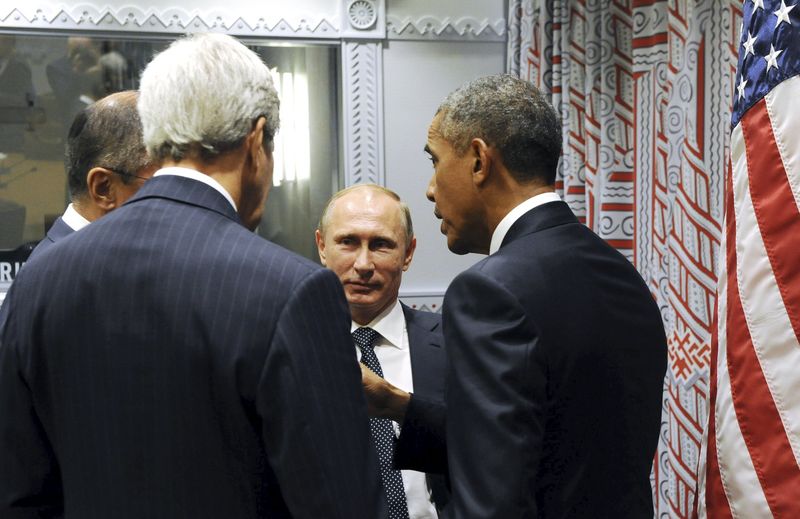WASHINGTON (Reuters) - U.S. Defense Secretary Ash Carter on Tuesday directed his staff to open lines of communication with Russia's military as Washington and Moscow explore ways to ensure the safety of rival operations in Syria's limited airspace, the Pentagon said.
"The purpose of these de-confliction discussions will be to ensure that ongoing coalition air operations are not interrupted by any future Russian military activity," said Pentagon spokesman Peter Cook.
The United States has been closely monitoring Russia's military buildup at an airbase near the city of Latakia, a stronghold of Syrian President Bashar al-Assad. It includes helicopters, tanks, artillery, armored personnel vehicles and advanced air defenses, U.S. officials say.
Although Russia has staged limited flights out of the base, including some short-range "familiarization" flights for pilots new to the area, it has not started strikes against militants opposed to Assad, a longtime Russian ally.
U.S. officials, speaking on condition of anonymity, said on Tuesday that United States believes that Russia has deployed an additional four advanced warplanes to the base.
One official identified the four aircraft as Sukhoi Su-34 "Fullback" aircraft, multi-role fighter aircraft with a range of capabilities.
They join a growing number of fixed wing Russian aircraft at the airbase near Latakia, including four Su-30 "Flanker" fighter jets, a dozen of the Su-24 "Fencer" fighter aircraft and another dozen Su-25 "Frogfoot" jets, officials say. The United States has also identified a Russian "Coot" manned spy plane at the base.
The order from Carter came a day after U.S. President Barack Obama and Russian President Vladimir Putin agreed that their armed forces should hold talks to avoid coming into conflict in Syria, even as they clashed over whether Assad should retain power.
The former Cold War foes have a common adversary in Islamic State militants in Syria, but Washington sees Assad as a driver in the nation's civil war while Putin suggested at the United Nations General Assembly on Monday that there was no option but to work with the Syrian leader, a long-time Russian ally.
Cook added that the upcoming discussions between the Russian and U.S. militaries also aimed to ensure the safety of air crews and to avoid "misjudgment and miscalculation."
He declined to offer details on the timing or mechanisms for future conversations between the U.S. and Russian militaries.
Still, U.S. officials say privately any such talks could include a range of methods to keep militaries apart, including staging air operations at different altitudes, in different locations and at different times.

(Reporting and writing by Phil Stewart; Editing by Alan Crosby)